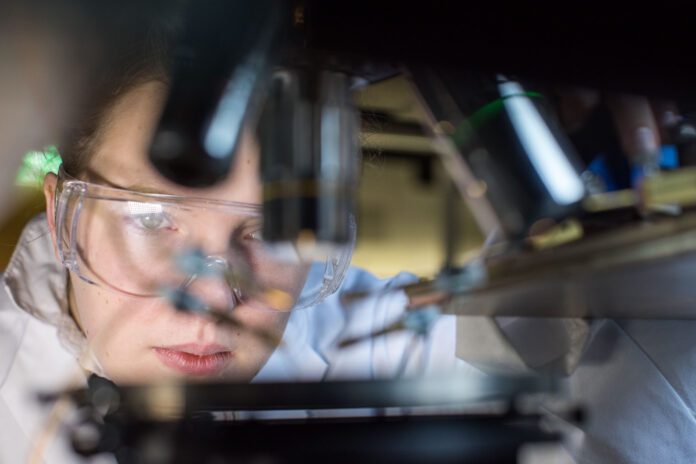
TWO researchers at University of Limerick have been awarded almost €3million in European Research Council grants for projects looking at male infertility and energy efficient electronics.
Dr Eoghan Cunnane and Dr Sarah Guerin, who are researchers at UL’s Bernal Institute received European Research Council (ERC) grants worth €1.5million each.
Dr Cunnane’s project will focus on the area of male infertility and he will use the award to establish his own independent research group.
“Recent research has identified that the number of sperm cells present in male ejaculate has dropped considerably over the last 40 years and is projected to reach zero by 2045.
“Such an event would render the human species unable to reproduce due to male infertility,” he explained.
“Despite this approaching crisis, clinicians have no effective treatment for male infertility and no means to test new treatments beyond animal models that poorly represent humans. This project will develop a truly representative model of the human testes that can act as a platform for identifying effective treatments in a reliable and reproducible manner”.
Dr Cunnane received his PhD in Biomedical Engineering from UL in 2015 and is a co-founder of the start-up company Class Medical which was spun out of UL to commercialise a patented urinary catheter safety device that is currently being supplied to hospitals across Ireland. He recently joined the School of Engineering as a Senior Research Fellow.
Dr Guerin said her project would investigate if electronics could become lead-free, reliable and eco-friendly.
“Piezoelectric sensors are used to interconvert electrical and mechanical energy and are essential to many common devices such as pacemakers, microwave ovens, sonar equipment and diesel fuel injectors in cars,” she explained.
“Piezo sensors are often used to measure a change in pressure, acceleration or strain by converting them into electrical charge. However, they also have a huge environmental cost. Their production involves using toxic lead oxide, and the main alternatives to lead involve using expensive, non-renewable materials – also quite undesirable.
“In recent years, biological materials such as amino acids and peptides have been recognised as exciting new piezoelectrics. Gathering them into biomolecular-crystal assemblies could offer a revolutionary way to create these essential sensors.
“Crystals can be grown at room temperature with no by-products, and do not require an external electric field to induce piezoelectricity. No one knows how to develop these crystals as reliable, solid-state sensors that could be used in conventional electronic devices.
“Their high water solubility, uncontrolled growth, variable piezoelectric response, and difficulty in making electrical contact pose too high a challenge,” added Dr Guerin, who is also a researcher at SSPC, the Science Foundation Ireland Research Centre for Pharmaceuticals based at UL.
She will take on the groundbreaking task of developing biomolecular crystals as a new type of piezoelectric sensor.
“Such organic, low-cost, high-performance sensors, would out-perform and ultimately lead to the phasing-out of inorganic device components – with dramatically reduced environmental impact,” she added.
UL Vice-President of Research Professor Norelee Kennedy said the two ERC starter awards were a fantastic achievement for both recipients and reflected their calibre as researchers.
“We are very excited at UL to support their novel and exciting research, which adds to the excellent research undertaken at the University,” she added.


